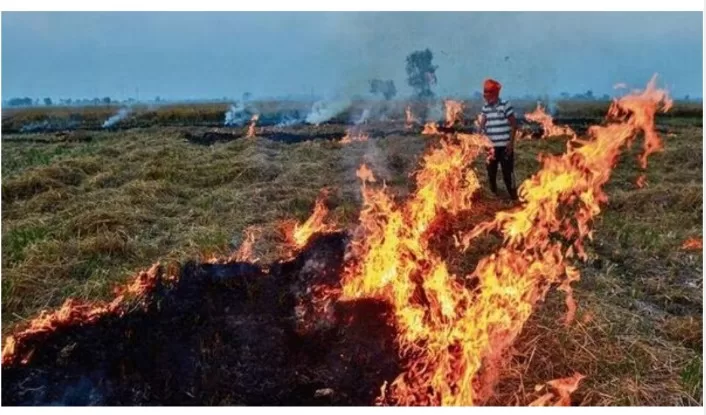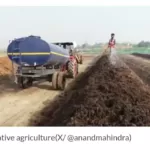In response to the alarming levels of air pollution in Delhi-NCR, the Supreme Court, in its recent deliberation on November 7, put forth a proactive solution to tackle the pressing issue of stubble burning. The honorable court suggested the gradual replacement of paddy cultivation with alternative crops in the state of Punjab, emphasizing that paddy was not indigenous to the region.
A distinguished bench, comprising Justices Sanjay Kishan Kaul and Sudhanshu Dhulia, presided over discussions relating to the escalating air pollution crisis in the Delhi-NCR region. The court underscored that paddy cultivation in Punjab, which exacerbates the problem of stubble burning, was incongruent with the state’s historical crop choices. The court proposed that the transition to alternative crops might be considered only if Minimum Support Price (MSP) policies favored these substitutes over paddy.
The court’s order stipulated, “The shift to alternative crops can only be envisioned when MSP is not provided for paddy but is allocated to alternative crops, a move that the Central Government is actively encouraging through the cultivation and utilization of traditional crops,” as quoted by Bar and Bench.
This directive emerged in the context of the court’s earlier pronouncement that farmers must immediately cease stubble burning in the northern states of Punjab, Haryana, and Western Uttar Pradesh. The court emphasized that stubble burning significantly contributes to the grave issue of air pollution, even though it might not be the exclusive culprit.
Air pollution levels tend to surge during the winter months due to multiple factors, including dust and vehicular emissions, arid-cold climatic conditions, stubble burning, post-harvest crop residue incineration, and vehicular traffic. Stubble burning is a practice wherein farmers ignite straw remnants left in fields after the harvest of crops such as wheat and paddy to prepare the land for the ensuing planting season.
While the bench expressed concerns regarding the inability of the government to effectively deter stubble burning, it acknowledged that the practice, though not the solitary cause of air pollution, remained a significant contributor.
The proposal to phase out paddy cultivation and explore alternative crops was suggested by Punjab’s Advocate General, Gurminder Singh. He advocated for the gradual discontinuation of paddy farming in favor of other crops, with the Central government considering the provision of Minimum Support Price for these alternatives rather than paddy. Senior advocate Gopal Sankaranarayanan also emphasized that paddy, an unsuitable crop for Punjab, had led to the depletion of groundwater levels.
Justice Kaul, addressing the Central government, remarked, “You are promoting millets on one hand and then letting paddy ruin groundwater. The crop is depleting the water table of the state, and the problem persists year after year.”
Consequently, the bench opined that paddy was not indigenous to Punjab and emphasized that a transition to alternative crops would be viable only under the condition that MSP favored these alternatives, aligning with the Central government’s aim of promoting the cultivation of traditional crops like millets.







